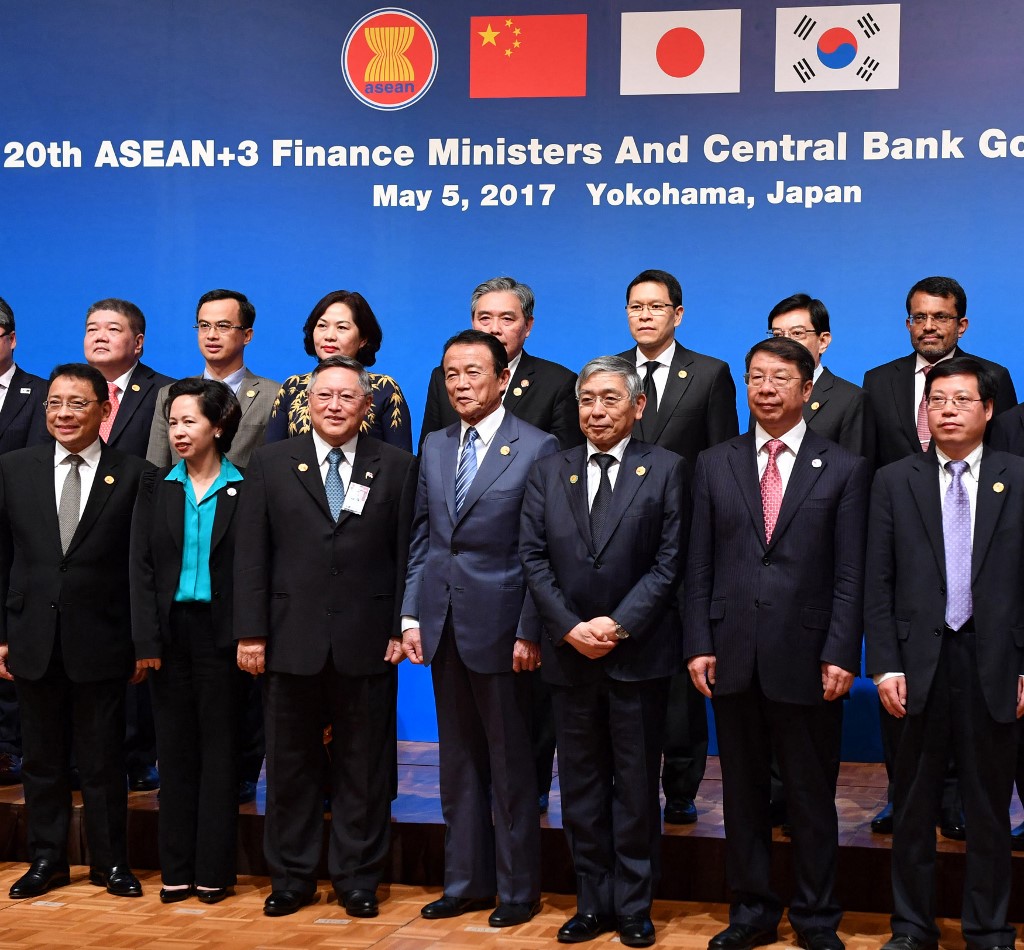(ATF) Amendments to the Chiang Mai Initiative Multilateralisation – a $240-billion currency swaps agreement involving Southeast Asian nations, plus Korea, China and Japan – went into effect on Wednesday. The move aims to boost financial self-reliance for participating countries.
China, Japan, South Korea and the 10 member countries of ASEAN agreed last year to amend the Chiang Mai accord. The changes institutionalise the use of members’ local currencies in addition to the US dollar for borrowings in a financial emergency, the People’s Bank of China said in a statement. Borrowing limits were also raised.
The changes push the use of local currencies, in addition to the dollar, when countries seek financing from the swap facility on a voluntary and demand-driven basis.
This effect reflects less of a need to use US dollars for intra-Asian transactions as China’s renminbi becomes a more important international currency, Barry Eichengreen, a professor of economics at the University of California Berkeley, said.
Another change is to raise the International Monetary Fund (IMF) de-linked portion from 30% to 40%. The increase in the de-linked portion means the 13 countries using the $240-billion regional swap facility can access up to 40% of their maximum borrowing amount from the facility when there is no matching IMF-supported program.
The change makes the multilateral swap facility “more readily available to the countries in need,” South Korea’s central bank said in statement.
Asian countries sought to cooperate in managing regional short-term liquidity problems following the Asian financial crisis in 1997-98. The Chiang Mai Initiative, which was established in March 2010, began as a series of bilateral swap arrangements that provided access to US dollar liquidity when a member country suffered a financial shock.
But to obtain such liquidity support, member countries had to first negotiate with the International Monetary Fund (IMF), a 190-nation institution that promotes global financial stability and monetary cooperation. The IMF serves as an emergency lender for member nations under strict conditions.
Pandemic spurs need for greater financial cooperation
The Covid-19 pandemic increased the need for international cooperation in finance.
The ASEAN countries, China, Japan and South Korea adopted amendments to the Initiative at a meeting of finance ministers and central bank governors in September 2020.
Participants at the meeting said they needed to strengthen the regional safety net given the severe economic impacts from the coronavirus. The multilateral initiative is seen as an important complement to the fiscal and monetary support provided by each country, they said.
Under the Initiative, a member government can swap its local currency for US dollars from the regional pool in the event of a balance of payments or liquidity crisis.
Each country’s borrowing quota is based on its contributions multiplied by a country-specific multiplier. At the operational level, the $240-billion safety net is made up of pledges of $192 billion from China, Japan and South Korea, and $48 billion from the 10 ASEAN countries.
The liquidity can be provided in local currencies, such as renminbi or the Japanese yen, with the consent of member countries.
The ASEAN nations are Brunei, Cambodia, Indonesia, Laos, Malaysia, Myanmar, the Philippines, Singapore, Thailand and Vietnam.
























